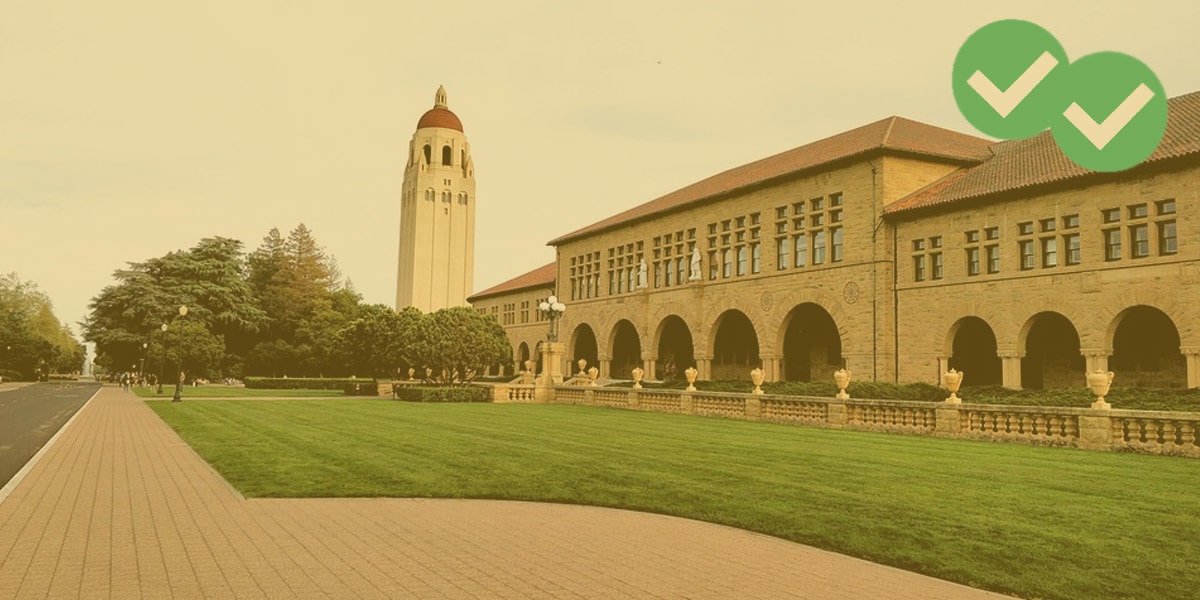
What’s a good score on the Law School Admission Test (LSAT)? The average range is from 120 to 180 points. That’s a pretty narrow score range, but it reflects a wide diversity of abilities and outcomes. The mean LSAT score is approximately 150, but you’re going to have to do well above average to get into a top law school. Here’s what average and good LSAT scores are for different goals, including LSAT scores for the top 100 law schools. Also, check out this guide to the LSAT score scale as well as our top tips for getting a high score on the LSAT!
Table of Contents
- What You Need to Know About Scores in 2024
- LSAT Scores for the Top 100 Law Schools [Infographic]
- Good LSAT Scores
- What is a Good LSAT Score for Your Goals?
- Scores and Your Future Salary
- Takeaways
LSAT Scores: What You Need to Know in 2024
The LSAT test currently has approximately 75-76 graded questions, with each correct answer counting for one point of your raw score. From your raw scores, the test is graded on an LSAT score scale from 120-180. The average LSAT score is about 150. To get into a top 14 law school, you need to score above 166, and to get into a top 50 law school, you need 153 or above.
If you plan to re-take the LSAT in an attempt to get a specific score, make sure to read this piece about non-disclosed LSATS. Also, keep in mind that you can cancel your LSAT scores if you’re not feeling good about your testing experience, but you only have a few days to do so.
Your LSAT score is the most important piece of your law school application.
Click to read more about why they’re important
How important are LSAT scores?
The two most important pieces of your law school application are your undergrad GPA and LSAT scores. There is some debate as to which of these two factors in law school admissions is more important. This debate is based on differences in law school admissions departments. Each department will naturally place a different emphasis on the various law school application requirements (undergraduate GPA, “soft factors” like the personal statement, and LSAT), prioritizing them based on their own formula.
However.
If you look at the most up-to-date law school rankings, you’ll notice that a program’s rank tends to correlate more with admitted students’ scores than with their undergraduate GPAs. The top programs require a top score. And an excellent score can help compensate for a less-than-stellar GPA.
Some law school admissions departments openly claim that the LSAT makes up 70% of a student’s admissions chances, with the other 30% attributed to GPA. You read that right—the morning that you spent taking the LSAT might be more important than the four years you spent studying in college.
So, I feel pretty confident when I say—your score is the most important piece of your law school application.
Why are LSAT scores so important?
The logic is fairly straightforward. The LSAT was designed to determine how likely you are to succeed in law school. Your test scores provide the best apples to apples measure of how law school applicants stack up against one another. While levels of grade inflation and academic rigor vary from one undergraduate university to another, the LSAT was built to be a consistent measure of ability for all test takers. Good scores are important because the LSAT provides law schools with the best means of measuring how prospective students stack up. (Side note: check out this overview of the average LSAT score by college major).
The takeaway here is twofold. First and foremost, studying for the LSAT is worth a significant investment of time and effort. Increasing your score will drastically improve your admissions chances. Second, for sending off your LSAT scores, be sure to research the law schools you plan to apply to. Some programs actually publish the calculation that they use to determine whether or not they will advance a candidate. Knowing this information will help you figure out the likelihood that you’ll be accepted, given the strength of your undergrad GPA and LSAT scores.
So now you’re convinced that the LSAT is really important. Time for a crash course on how LSAT scoring works.

LSAT Scores for the Top 100 Law Schools
Ready for a little data visualization? Take a look at the LSAT scores for the top 100 law schools. Each responsive dot in the chart below represents one of the top 100 law schools in the United States. Hover over a dot to learn more about that program’s application requirements. You can also drag your mouse over an area to zoom in, then right-click to reset the view! Then, scroll down for more info on law school LSAT scores!
LSAT Scores for the Top 10 Law Schools
Do you envision yourself graduating from an ultra-prestigious law school like Yale, Harvard, or Stanford? It’s a beautiful dream, and one that you shouldn’t discount. If your undergrad GPA is 3.8 or above, and the soft factors of your application are strong, then a great score could put you in contention.
And by a great LSAT score, I mean near-perfect.
The table of LSAT scores by school shows some important trends. The 75th percentile LSAT score for a top 10 school ranges from 171 (Duke University) to 178 (Yale). The 25th percentile LSAT scoring range is from 166 to 171. These are the top-ranked schools for a reason—they are tough to get into. Only 5.7% of applicants earn the right to join Yale Law School each year. So, congratulations to Yalies Hillary and Bill Clinton, Sonia Sotomayor, Clarence Thomas, Samuel Alito, and Gerald Ford…you really raised the bar for prospective students!
The table below shows 2023-2024’s ten highest-ranked law schools according to U.S. News & World Report’s Best Law Schools report.
| Law School Rank | Law School Name | LSAT Score 25th-75th Percentile Range | Acceptance Rate |
|---|---|---|---|
| 1 (tie) | Stanford University | 170-176 | 6.9% |
| 1 (tie) | Yale University | 171-178 | 5.7% |
| 3 | University of Chicago | 169-175 | 14.2% |
| 4 | University of Pennsylvania | 167-173 | 9.7% |
| 5 (tie) | Duke University | 168-171 | 10.7% |
| 5 (tie) | Harvard University | 170-176 | 10.1% |
| 5 (tie) | New York University | 169-174 | 15.7% |
| 8 (tie) | Columbia University | 171-175 | 11.9% |
| 8 (tie) | University of Virginia | 166-173 | 12.9% |
| 10 (tie) | Northwestern University (Pritzker) | 166-172 | 15% |
| 10 (tie) | University of California – Berkeley | 167-172 | 12.5% |
| 10 (tie) | University of Michigan — Ann Arbor | 166-172 | 13.5% |
Scores for Law Schools Ranked 11-50
Did you look at that chart of reach schools above and think to yourself, “on second thought, a top 50 law school would be a great fit for me”? Well, that’s understandable. Even if you’re aiming for a top ten school, it doesn’t hurt to apply to some target and safety schools, as well.
Here is where the LSAT score ranges become really diverse. Say you really want to go to fifteenth-best law school, the Georgetown University. With about a 17.6% acceptance rate, this is an incredibly competitive school. The 75th percentile LSAT score is a mighty 172.
Go ahead and filter the table below by your score. A 160+ LSAT score will provide you with quite a few options. You can also search by law school to see stats on your top prospects.
| Law School Rank | Law School Name | LSAT Score 25th-75th Percentile Range | Acceptance Rate |
|---|---|---|---|
| 13 | Cornell University | 170-174 | 17.4% |
| 14 | University of California – Los Angeles | 166-172 | 15.5% |
| 15 | Georgetown University | 166-172 | 17.6% |
| 16 (tie) | University of Minnesota | N/A | 37.2% |
| 16 (tie) | University of Southern California (Gould) | 165-169 | 12.7% |
| 16 (tie) | University of Texas – Austin | 166-171 | 14.6% |
| 16 (tie) | Vanderbilt University | 163-170 | 14.5% |
| 20 (tie) | University of Georgia | 156-169 | 14.8% |
| 20 (tie) | Washington University in St. Louis | 164-173 | 18% |
| 22 (tie) | Brigham Young University (Clark) | 165-171 | 31.4% |
| 22 (tie) | Ohio State University (Moritz) | 159-166 | 37.1% |
| 22 (tie) | University of Florida (Levin) | 162-170 | 16.9% |
| 22 (tie) | University of North Carolina – Chapel Hill | 162-167 | 14.6% |
| 22 (tie) | Wake Forest University | 159-166 | 33% |
| 27 (tie) | Boston University | 164-171 | 16.3% |
| 27 (tie) | University of Notre Dame | 162-170 | 24.6% |
| 29 (tie) | Boston College | 162-167 | 10.2% |
| 29 (tie) | Fordham University | 164-168 | 18.8% |
| 29 (tie) | Texas A&M University | 158-166 | 16.3% |
| 32 (tie) | Arizona State University (O’Connor) | 158-168 | 19.7% |
| 32 (tie) | George Mason University | 158-167 | 19.6% |
| 32 (tie) | University of Utah (Quinney) | 158-164 | 31.9% |
| 35 (tie) | Emory University | 161-169 | 26% |
| 35 (tie) | George Washington University | 162-169 | 25% |
| 35 (tie) | University of Alabama | 159-168 | 25.8% |
| 35 (tie) | University of California — Irvine | 162-168 | 19.5% |
| 35 (tie) | University of Iowa | 161-165 | 41.3% |
| 40 (tie) | University of Kansas | 153-160 | 55.3% |
| 40 (tie) | University of Wisconsin — Madison | 157-167 | 35.2% |
| 40 (tie) | Washington and Lee University | 159-166 | 32.7% |
| 43 (tie) | University of Illinois — Urbana-Champaign | 162-167 | 34.7% |
| 43 (tie) | Villanova University (Widger) | N/A | 16.5% |
| 45 (tie) | Indiana University — Bloomington (Maurer) | 158-165 | 43.4% |
| 45 (tie) | Pepperdine University (Caruso) | 159-166 | 27.7% |
| 45 (tie) | SMU (Dedman) | 160-165 | 33.9% |
| 45 (tie) | William and Mary Law School | 160-166 | 46% |
| 49 (tie) | Baylor University | 159-164 | 23.9% |
| 49 (tie) | University of Washington | 160-166 | 30.3% |
Scores for Law Schools Ranked 51-100
If you’re scoring in the 155 range on the LSAT, or you are looking for a local safety school to apply to, then take a look at the U.S. law schools that are ranked 51–100. There are a lot of great, and often overlooked, options on this list of the second half of the LSAT scores for the top 100 law schools.
| Law School Rank | Law School Name | LSAT Score 25th-75th Percentile Range | Acceptance Rate |
|---|---|---|---|
| 51 (tie) | University of Maryland (Carey) | 157-164 | 29.5% |
| 51 (tie) | University of Oklahoma | 155-160 | 42.5% |
| 51 (tie) | University of Tennessee–Knoxville | 156-162 | 33.2% |
| 54 (tie) | Temple University | 160-165 | 36.5% |
| 54 (tie) | University of Arizona (Rogers) | 158-164 | 24.9% |
| 56 (tie) | Florida State University | 159-166 | 19.6% |
| 56 (tie) | Seton Hall University | 154-162 | 40.3% |
| 56 (tie) | University of Colorado–Boulder | 159-166 | 31.2% |
| 56 (tie) | Wayne State University | 154-163 | 35.5% |
| 60 (tie) | Florida International University | 156-162 | 22.6% |
| 60 (tie) | Loyola Marymount University | 157-163 | 34.4% |
| 60 (tie) | St. John’s University | 154-164 | 39.9% |
| 60 (tie) | University of California College of the Law, San Francisco | 157-163 | 29% |
| 60 (tie) | University of California–Davis | 163-166 | 25.2% |
| 60 (tie) | University of Houston | 157-162 | 32.1% |
| 60 (tie) | University of Kentucky (Rosenberg) | 155-160 | 50.1% |
| 60 (tie) | University of Richmond | 158-165 | 33.7% |
| 60 (tie) | University of South Carolina | 156-161 | 37.6% |
| 69 (tie) | Georgia State University | 157-162 | 28.4% |
| 69 (tie) | Yeshiva University (Cardozo) | 159-166 | 33.8% |
| 71 (tie) | Marquette University | 153-158 | 41% |
| 71 (tie) | Northeastern University | 158-166 | 31.1% |
| 71 (tie) | Texas Tech University | 154-160 | 36.8% |
| 71 (tie) | Tulane University | 157-163 | 43.3% |
| 71 (tie) | University of Connecticut | 156-162 | 28% |
| 71 (tie) | University of Miami | 156-164 | 33.5% |
| 71 (tie) | University of Missouri | 156-162 | 51.4% |
| 78 (tie) | University of Oregon | 155-161 | 55.3% |
| 78 (tie) | University of San Diego | 157-163 | 34.5% |
| 80 (tie) | Case Western Reserve University | 153-162 | 39.2% |
| 80 (tie) | Drexel University (Kline) | 152-161 | 31% |
| 80 (tie) | Pennsylvania State University – University Park | 156-163 | 30.9% |
| 80 (tie) | University of Denver (Sturm) | 156-162 | 48.5% |
| 84 (tie) | Lewis & Clark College (Northwestern) | 158-164 | 52% |
| 84 (tie) | Loyola University Chicago | 157-161 | 41.7% |
| 84 (tie) | Stetson University | 156-159 | 31% |
| 84 (tie) | University of Cincinnati | 156-161 | 44.8% |
| 88 | Drake University | 151-157 | 71.3% |
| 89 (tie) | American University (Washington) | 156-163 | 33.8% |
| 89 (tie) | Duquesne University (Kline) | 153-158 | 56.3% |
| 89 (tie) | Pennsylvania State University Dickinson Law | 156-163 | 36.8% |
| 89 (tie) | Saint Louis University | 153-161 | 61.2% |
| 89 (tie) | University of Nebraska–Lincoln | 155-161 | 60.9% |
| 89 (tie) | University of Nevada–Las Vegas | 155-162 | 35.4% |
| 89 (tie) | University of Pittsburgh | 159-163 | 33.2% |
| 96 (tie) | University of Montana (Blewett) | 151-158 | 66.1% |
| 96 (tie) | University of New Mexico | 152-160 | 47% |
| 96 (tie) | University of St. Thomas | 152-159 | 65.5% |
| 99 (tie) | Gonzaga University | 152-156 | 61.9% |
| 99 (tie) | Illinois Institute of Technology (Chicago-Kent) | 155-161 | 50.5% |
| 99 (tie) | Indiana University–Indianapolis (McKinney) | 151-158 | 64.9% |
| 99 (tie) | Louisiana State University–Baton Rouge (Hebert) | 154-159 | 52.5% |
| 99 (tie) | Mercer University (George) | 153-157 | 46.1% |
| 99 (tie) | University of Louisville (Brandeis) | 152-158 | 54.2% |

Good LSAT Scores
You can score between 120 and 180, but a good LSAT score very much depends on your goals, the programs you are applying to, and the other aspects of your application. You should aim for the 50th to 75th percentile for your “dream” law program.
Do you not have a “dream law school”? That’s okay. This isn’t college admissions, and many law school applicants don’t have their hearts set on one specific program. If your “dream school” is the highest-ranked law program you can get into, then preparing for a great score should be your number one priority.
Is your LSAT score good enough?
Since you’re reading this post, I’m going to guess that you fall into one of two categories.
- You’ve already taken the LSAT and are now trying to determine which law schools you can get into with your score. You would consider retaking the LSAT if your score isn’t good enough for the caliber of law school that you’re hoping to attend.
- You haven’t taken the LSAT yet and are trying to figure out what score you need to get into a top program. You’ve probably taken a practice test and are doing your research to set a score goal.
In either case, the first step in figuring out whether or not your LSAT score is good enough is to research the scores and score percentiles of each law school’s newly admitted class. If you have a score from a practice test, you can then convert it to an LSAT percentile.
(When we discussed LSAT score percentiles earlier in this post, I was speaking in the context of LSAT Score Reports. The LSAT score percentile that you’ll see on your score report tells you how your score compares to that of other students who took that test. This is slightly different.)

What is a Good LSAT Score for Your Goals?
You know the average scores and LSAT scores for the top 100 law schools—now let’s break it down a little more, and talk about some specific scores:
Is 150 a good LSAT score?

According to StartClass.com, there are over 50 law schools in the United States with scores of 150 or lower within their median range (though, I’ll warn you that you’ll find very few of them in the table of Top 100 Law Schools).
When is a 150 LSAT good?
A score of 150 on the LSAT is within the range of “an LSAT score needed for law school.” In other words, it’s good enough to get into law school, despite what anyone says to the contrary…just not a top law school. (And that’s okay!)
So does that mean 150 is a good LSAT score? It does if your only goal is to get into any law school, and for many people, that’s exactly their goal. In this sense, you can think of a 150 as a good score for the passionate applicant. These are people who feel driven to practice law because they understand the job, love what it entails, and are prepared to work hard regardless of compensation or recognition.
When is a 150 LSAT not good?
If you’re applying to law school primarily because you are searching for financial and professional stability, a 150 is probably not a promising score. A score of 150 most likely means that you’ll be attending a lower tier school, and thus will have more limited access to lucrative positions at big firms.
With this is mind, getting a score in the 150s when your scores are released might mean you should consider retaking the LSAT.
Is 160 a good LSAT score?

Of the 205 ABA-approved law schools in the United States, only about 40 of them have median scores above 160. That means that a score of 160 would put you above the median at 80% of the law schools in the country.
When is a 160 LSAT good?
Most people consider anything above a 160 to be a good LSAT score on your LSAT test date. In this context, “good” really only means a score that sounds respectable and that most law schools will look upon favorably. Compare this to scoring above 1800 on the SAT (or above 1200, depending on when you took the SAT) or above 25 on the ACT.
When is a 160 LSAT not good?
…to those of you who are aiming for top 20 schools, you’ll need to set your sights a bit higher than 160. As you can see from the tables, basically all of the top 20 law schools in the US have median LSAT score ranges of 162 or higher. As a reminder, that’s just the median score range, so your chances aren’t ruined if you don’t hit that mark. However, you’ll have a competitive edge if you can get your score up above the school’s median.
Furthermore, a 160 might not be desirable for students seeking scholarships.
Is 170 a good LSAT score?

A 170 or higher means you’re scoring in the top 2-3% of LSAT test-takers, and almost no one is going to complain about that. Admissions officers certainly won’t.
When is a 170 LSAT good?
Pretty much always. But will a 170 guarantee you a spot at Yale? Nope. Will a 175? Probably not. Will a 180? Unlikely. LSAT scores are an important part of your application (arguably the most important part), but they are still only one part. A weak GPA, lack of work experience, or unimpressive letters of recommendation can derail any application, even if it’s accompanied by a perfect score.
Think of it this way: over 100,000 people take the LSAT each year. The top 2-3% equals about 3,000 students. The top 10 law schools, collectively, have fewer than 3,000 seats available. Therefore, there isn’t even space for all the people who score above 170 to attend a top ten school.
Now, to be fair, if you score a 170 or higher, you’re probably going to be accepted to a great school regardless of the rest of your application.
When is a 170 LSAT not good?
If you’ve ever visited an online law school forum, you probably won’t be surprised to hear that some people are not impressed with a 170. Granted, law school forum users tend to be an exceptionally intense subset of an already selective group of the population (people taking the LSAT), but they do have some valid reasons for fretting over the difference between a 170 and a 175.
Remember, there aren’t enough seats in the top 10 law schools for all the folks who score over a 170. If you’re one of those people, you want to do everything in your power to make sure you’re not one of the applicants who gets bumped. So, you try to edge out the competition with an extra point of two.

LSAT Scoring and Future Salary
Now that you know how challenging it is to go to a top ten or top fifty law school, you’re probably wondering how your LSAT score (and the law school it enables you to attend) will affect your future career. Does a JD from a prestigious law school guarantee you better job prospects and a higher salary?
Let’s put it this way: if you needed even more of a reason to believe that your LSAT score is a valuable indicator of future success beyond law school life, then I think we found it.
To answer this question using real-world numbers, I pulled average LSAT score data and salary data from U.S. News & World Report. What I found shows that the correlation between a high LSAT score and high starting salary is impressive, especially if you’re looking at the highest ranking law schools.
According to the data in the table below, graduating from a top ten law school will basically guarantee you a job within ten months of graduation, and a starting salary of $160,000 per year, if you work in the private sector. Aside from some outliers, a higher LSAT score and a top-ranked school corresponds with a higher salary upon graduation.
(Hint: If your score is 162 or above, you might consider applying to 29th-ranked Boston College. Their average starting salaries for private sector practice are high—to the tune of $144,818 per year.)
Scores vs. Starting Salaries
| Rank | Law School Name | LSAT Score 25th-75th Percentile Range | Graduates Employed in Long-Term, Full-Time Legal Jobs | Median Starting Salary (private sector & public sector) |
|---|---|---|---|---|
| 1 (tie) | Stanford University | 170-176 | 81.5% | Private: $190,000 Public: $70,000 |
| 1 (tie) | Yale University | 171-178 | 79.8% | Private: $190,000 Public: $68,563 |
| 3 | University of Chicago | 169-175 | 93.1% | Private: $190,000 Public: $66,393 |
| 4 | University of Pennsylvania | 167-173 | 89.7% | Private: $190,000 Public: $65,000 |
| 5 (tie) | Duke University | 168-171 | 95.3% | Private: $190,000 Public: $65,000 |
| 5 (tie) | Harvard University | 170-176 | 89.2% | Private: $190,000 Public: $60,000 |
| 5 (tie) | New York University | 169-174 | 94.5% | Private: $174,740 Public: $55,266 |
| 8 (tie) | Columbia University | 171-175 | 95.1% | Private: $186,014 Public: $61,529 |
| 8 (tie) | University of Virginia | 166-173 | 95.4% | Private: $190,000 Public: $66,974 |
| 10 (tie) | Northwestern University (Pritzker) | 166-172 | 90.9% | Private: $162,630 Public: $63,479 |
| 10 (tie) | University of California – Berkeley | 167-172 | 88.6% | Private: $177,909 Public: $62,595 |
| 10 (tie) | University of Michigan — Ann Arbor | 166-172 | 93.5% | Private: $170,228 Public: $60,187 |
| 13 | Cornell University | 170-174 | 90.6% | Private: $181,955 Public: $60,737 |
| 14 | University of California – Los Angeles | 166-172 | 89.1% | Private: $151,167 Public: $59,608 |
| 15 | Georgetown University | 166-172 | 87.7% | Private: $168,657 Public: $56,258 |
| 16 (tie) | University of Minnesota | N/A | 91.1% | Private: $105,178 Public: $57,564 |
| 16 (tie) | University of Southern California (Gould) | 165-169 | 89.2% | Private: $151,159 Public: $60,946 |
| 16 (tie) | University of Texas – Austin | 166-171 | 87.2% | Private: $140,612 Public: $58,159 |
| 16 (tie) | Vanderbilt University | 163-170 | 90.4% | Private: $147,645 Public: $70,755 |
| 20 (tie) | University of Georgia | 156-169 | 94.8% | Private: $100,597 Public: $55,466 |
| 20 (tie) | Washington University in St. Louis | 164-173 | 92.5% | Private: $80,000 Public: $50,000 |
| 22 (tie) | Brigham Young University (Clark) | 165-171 | 78.5% | Private: $120,964 Public: $50,779 |
| 22 (tie) | Ohio State University (Moritz) | 159-166 | 83.5% | Private: $102,275 Public: $54,908 |
| 22 (tie) | University of Florida (Levin) | 162-170 | 82.9% | Private: $86,913 Public: $47,193 |
| 22 (tie) | University of North Carolina – Chapel Hill | 162-167 | 85.2% | Private: $116,278 Public: $57,610 |
| 22 (tie) | Wake Forest University | 159-166 | 88.1% | Private: $115,000 Public: $57,376 |
| 27 (tie) | Boston University | 164-171 | 84.1% | Private: $165,000 Public: $64,773 |
| 27 (tie) | University of Notre Dame | 162-170 | 90% | Private: $100,000 Public: $54,797 |
| 29 (tie) | Boston College | 162-167 | 86.8% | Private: $144,818 Public: $57,920 |
| 29 (tie) | Fordham University | 164-168 | 88.3% | Private: $163,171 Public: $61,569 |
| 29 (tie) | Texas A&M University | 158-166 | 85.5% | Private: $84,984 Public: $64,964 |
| 32 (tie) | Arizona State University (O’Connor) | 158-168 | 85.8% | Private: $112,500 Public: $66,000 |
| 32 (tie) | George Mason University | 158-167 | 80.1% | Private: $128,423 Public: $67,215 |
| 32 (tie) | University of Utah (Quinney) | 158-164 | 92.4% | Private: $96,489 Public: $57,651 |
| 35 (tie) | Emory University | 161-169 | 83.7% | Private: $90,000 Public: $59,000 |
| 35 (tie) | George Washington University | 162-169 | 83.7% | Private: $142,000 Public: $56,400 |
| 35 (tie) | University of Alabama | 159-168 | 87.1% | Private: $190,000 Public: $62,500 |
| 35 (tie) | University of California — Irvine | 162-168 | 78.9% | Private: $126,081 Public: $66,404 |
| 35 (tie) | University of Iowa | 161-165 | 92.5% | Private: $105,310 Public: $55,135 |
| 40 (tie) | University of Kansas | 153-160 | 92.9% | Private: $88,583 Public: $55,679 |
| 40 (tie) | University of Wisconsin — Madison | 157-167 | 85.3% | Private: $93,696 Public: $55,084 |
| 40 (tie) | Washington and Lee University | 159-166 | 89.8% | Private: $116,990 Public: $54,843 |
| 43 (tie) | University of Illinois — Urbana-Champaign | 162-167 | 88.4% | Private: $102,456 Public: $61,040 |
| 43 (tie) | Villanova University (Widger) | N/A | 83.2% | Private: $75,000 Public: $56,160 |
| 45 (tie) | Indiana University — Bloomington (Maurer) | 158-165 | 89.7% | Private: $111,951 Public: $52,692 |
| 45 (tie) | Pepperdine University (Caruso) | 159-166 | 81.6% | Private: $93,007 Public: $67,547 |
| 45 (tie) | SMU (Dedman) | 160-165 | 90.7% | Private: $115,057 Public: $61,148 |
| 45 (tie) | William and Mary Law School | 160-166 | 85.3% | Private: $121,579 Public: $56,691 |
| 49 (tie) | Baylor University | 159-164 | 88.3% | Private: $94,524 Public: $69,444 |
| 49 (tie) | University of Washington | 160-166 | 82.4% | Private: $115,000 Public: $68,713 |

LSAT Score Takeaways
Your scores are incredibly important to your law school career. On the whole, a strong LSAT score in or above the LSAT scores for the top 100 law schools will help you get into a top-ranked program, which in turn will help you graduate law school with a job and an impressive salary. Oh, and it’s pretty difficult to accurately predict your LSAT score without doing plenty of practice. So, set aside some time, invest in Magoosh LSAT(you can choose between a live cohorted class with an instructor or access to the self-study option by itself), and other LSAT books and resources, and start prepping. This is also the key to to improving your LSAT score if you choose to take it, so trust us, you won’t regret it!
Please let us know if you have any questions, additions, or suggestions by leaving a comment on this post. We’d be thrilled to start a conversation with you. And before you go, here’s some suggested follow-up reading for you:
- Free LSAT Practice Tests (with bonus video explanations)
- LSAT Study Schedules
- LSAT Prep Checklist (with free PDF)








Leave a Reply